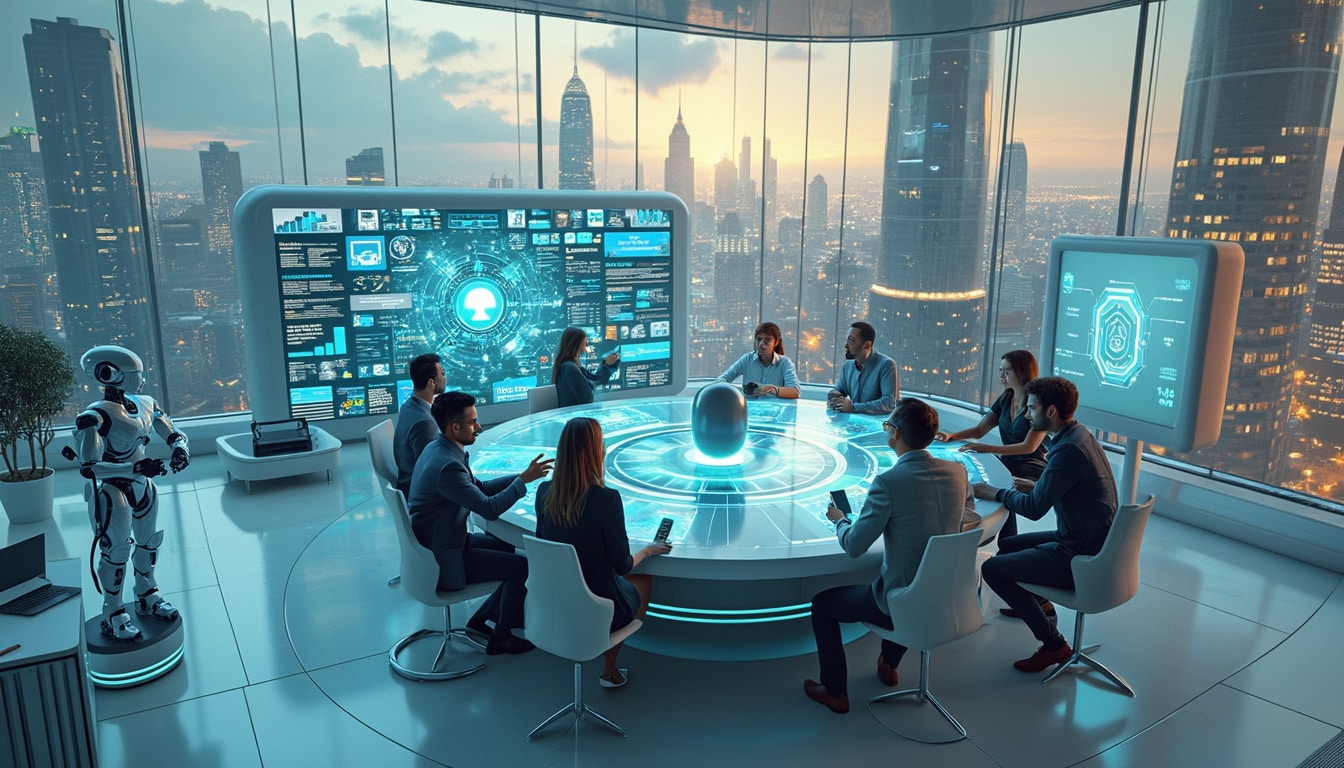At a time when teleworking and digital nomadism are growing, an essential question arises: why is the world not yet ready to fully welcome ‘digital workers’? Although technological advancements and communication tools have opened up promising horizons, many obstacles remain. From limited infrastructure in some regions to cultural biases against remote work, the reasons are as varied as they are unexpected. Let’s dive into the heart of this phenomenon and explore together the surprising challenges that hinder the flourishing of this new generation of professionals.
Table of Contents
ToggleThe Concept of ‘Digital Workers’

As we live in an era where technology and artificial intelligence dominate, the idea of integrating digital workers into companies is gaining traction. These virtual avatars, like Devin the engineer and Piper the sales agent, are designed to perform specific tasks as automated agents. But why is the world not yet ready for this digital revolution?
The Reservations of Real Employees
A significant part of the resistance comes directly from human employees. When Sarah Franklin, CEO of Lattice, announced the integration of digital workers into their platform, the reaction was swift and negative. Some felt that treating AI agents as real employees was disrespectful to humans and their work.
For many workers, the arrival of intelligent agents feels more like a threat than an opportunity. The idea of having to compete with artificial intelligence for a job raises growing concerns.
Current Challenges of AI
Despite the impressive advances in AI, it is still in its infancy. Systems like Einstein from Salesforce or Devin from Cognition.ai can perform specific tasks, but there are still many limitations. Numerous failures of AI have been reported, reinforcing the notion that it is still immature and unreliable for certain functions.
The notorious errors of Google’s AI or Microsoft’s Copilot show that these technologies still need to evolve before they can reliably replace human workers.
Ethical Issues
In addition to technical limitations, there are numerous ethical issues surrounding the use of digital workers. Can we really grant AIs the same rights and treatment as humans? This question raises debates about the nature of work and relationships within modern companies.
Many believe that integrating AI agents as employees could degrade workplace relationships and reduce the humanity of professional environments.
The Pace of Adaptation
The world is evolving, indeed, but this evolution must happen at a pace that humans can keep up with. The rapid integration of digital workers is perceived as a rushed attempt to capitalize on a technology that is not yet ready, fueling resistance and fears.
Companies must find ways to integrate these technologies gradually and thoughtfully to facilitate the adaptation of human employees.
Key Points
| Reasons | Explanations |
| Impact on Jobs | Perceived competition between humans and AI |
| Reliability of AI | Technology still imperfect and immature |
| Ethical Issues | Rights and treatment of AIs |
| Gradual Adaptation | Need for measured integration |

Mexique: le ministère du Travail veut promouvoir les droits des travailleurs numériques https://t.co/pNoBd9pDwY
— mind RH (@planetlabor) November 14, 2022









